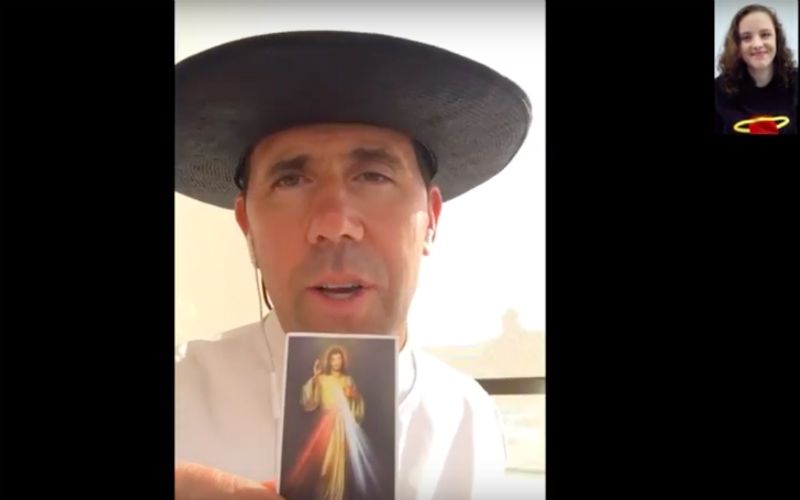How can we combat the evils of the world and live a life of holiness?
In a recent interview with Norbertine Fr. Charbel Grbavac, ChurchPOP editor Jacqueline Burkepile discussed the order’s new series, “After the Upper Room,” which covers the lives of the apostles, and how they influenced the world after Pentecost.
Jacqueline discusses multiple topics with Fr. Charbel, including spiritual warfare, carrying out the Gospel in a culture that rejects Christianity, living a holy life, and combating discouragement in an anti-God culture.
He also covers the “five stones of Goliath,” which represent the “five Wounds of Jesus Christ, because both Peter and Isaiah tell us, “by the wounds of Christ you are healed. And when a soldier’s wounded, he’s weaker.”
Fr. Charbel explains, “The five stones of Christ are the stones David picked up to combat Goliath. The Bible says he picked up five stones from the river and he threw one, which represents the one true God.”
Listen to Fr. Charbel explain these stones in the video below:
Click here if you cannot see the video above.
The Five Stones against “our Goliath”:
“The five stones helps heal and protect our five senses…and the five wounds are also the five aspects of the life of the following:
1) Confession
“Like in the image of the Divine Mercy, the white waters confession, the white waters of cleansing, the white waters of baptism. So you wash yourself clean by baptism, confession, by acts of contrition.
2) Eucharist
“You fill yourself up with the red rays, which are the Eucharist—the body, blood, soul and divinity of Jesus Christ, really, truly, substantially present in the most Holy Eucharist.
3) The Scriptures
“The very word of God, the Holy Bible. The very parables and teachings of Jesus Christ, coming to us by the Bible. This helps cleanse our memory and imagination.
“It helps us think about his teachings. We should read a little bit of the bible every day. Pray and study the bible. Catholic apologetics. Being able to explain and defend the faith to others who many not understand it or are against it.
4) Praying with the Heart
“Praying with Sacred Heart of Jesus and the Immaculate and Sorrowful Heart of Mary, and praying her rosary, especially, which is a summary of the life of Jesus through Mary. Talking to God-heart-to heart.
5) Fasting
“Bodily prayer. Denying yourself food, maybe on Wednesdays and Fridays, which are the traditional fast days. Experiencing hunger, (of course taking care of your health), but also, we should be hungry for the Eucharist.
“So when you deny yourself food you could have, you are uniting yourself with the Holy Eucharist, because it reminds you that you are hungry for the bread of life.
“’Unless you eat my flesh and drink my blood, you have within life within you.’ Jesus says in John 6, ‘For my flesh is true food, and my blood is true drink. Whoever eats my flesh and drinks my blood remains in me and I in him.'”
“Fasting is bodily prayer that makes us hungry for the Eucharist. When we experience hunger, it should make us more compassionate to our neighbors. It should make us more mindful of those who are going hungry. In fact two-thirds of the world goes hungry each night.
“Fasting also…makes us stronger…we read in the gospels that “only certain demons are cast out through prayer fasting.” The demons of impurity and lust are especially cast out with bodily fasting.”
Click here to learn more about The Abbot’s Circle, and the Norbertine Fathers’ new series, “After the Upper Room.“
What do you think about the Five Stones of Holiness Fr. Charbel discussed?
[See also: Think You Know Fr. Mike Schmitz? Here’s His 20 Hilarious Answers to Questions No One Ever Asks]
[See also: Drive Demons Crazy: 6 Tips For Spiritually Protecting Your Home or Dorm Room]

